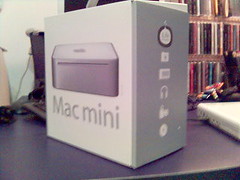The popular IM chat service ICQ just upgraded their protocol (German link).
Usually, no big deal. The change should have been announced so everybody could adapt to it.
But, no, of course they just silently changed the protocol and thereby locked out the users of alternative (e.g. open source) IM clients such as Miranda, Gaim or Adium.
While this step is of course intentional (as the ICQ people want their users to use the original client for ad revenue reasons), it is another sign of why even such "trivial" things as closed source messaging protocols are bad. There is no security at all that the "owner" of the protocol will pay attention to your needs at all. Imagine you worked for a company. Would you rely on ICQ for your employees' instant messaging? (Disregarding the privacy issues...,) it would mean that right now, the protocol owner would have seriously impacted your whole company's information flow, costing you gazillions of money. You wouldn't do that if you were a manager, would you? Similarly, why should we put our private conversations into their hands and allow them to mute us at any given second?
There are other possibilities. Meanwhile the free jabber protocol has become so mature that it is flawlessly usable. And more and more people are at least getting a jabber account additional to the other IM chat account(s) they are using.
So, until my messaging clients get an update, my ICQ communication will remain quiet. :( Go §$%$% [*] yourself, ICQ.
And please, people. Get a free messaging client (such as the ones I mentioned above) and get yourself a free jabber account on one of the jabber servers in your country. You can still use your old messaging protocols with them but it's a great step ahead to not relying on un-free communication protocols anymore. :)
(and yes, if you ask, I will probably give you my jabber account address, so that you can add me to your list)
[*] all kinds of swear words to be inserted here.

 Most of us Blog authors have kind of a spam problem. So do I, since my blog engine is quite popular not only among publishers but also among spammers. There are several anti-spam plugins out there. The easiest ones use a
Most of us Blog authors have kind of a spam problem. So do I, since my blog engine is quite popular not only among publishers but also among spammers. There are several anti-spam plugins out there. The easiest ones use a  Apparently, this is not a very rare problem, as there is already a
Apparently, this is not a very rare problem, as there is already a  However, I don't feel good about sending all my emails in full text to
However, I don't feel good about sending all my emails in full text to  Recently, I bought a Linksys NSLU2 network attached storage device and installed Linux on it. I have it boot over a 64 MB USB flash stick that I had to spare and I connected a ext3-formatted USB harddrive to it. It works flawlessly with Samba, serving the USB drive to all of my client OSes.
Recently, I bought a Linksys NSLU2 network attached storage device and installed Linux on it. I have it boot over a 64 MB USB flash stick that I had to spare and I connected a ext3-formatted USB harddrive to it. It works flawlessly with Samba, serving the USB drive to all of my client OSes.